

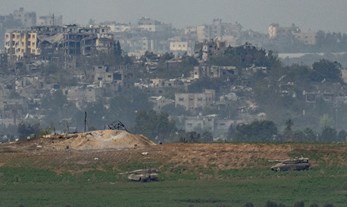
Most Israelis Prefer to Wait Until After the War to Designate Responsibility
Written By: Prof. Tamar Hermann, Dr. Or Anabi
The October 2023 edition of the Israeli Voice Index shows that a significant majority of Jewish Israelis trust the heads of the IDF over PM Netanyahu. If elections were to be held today, a majority of Israelis (55%) would vote for the same bloc they voted for in the last elections.
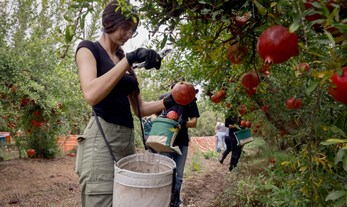
The Link Between Labor Shortages and Israel’s Strategic Security
Written By: Daphna Aviram-Nitzan
The government of Israel must recognize the strategic importance of agriculture, the food sector, and other industries producing goods that are vital for the country’s security and for the continued functioning of the business sector during times of emergency and war

Unpacking Key Assumptions Underlying Legal Analyses of the 2023 Hamas-Israel War
Written By: Prof. Amichai Cohen, Prof. Yuval Shany
The current round of violence between Hamas and Israel has already given rise to many expressions of legal opinion. In this essay, we map some key assumptions and unpack how they can significantly affect ongoing legal debates and deliberations.
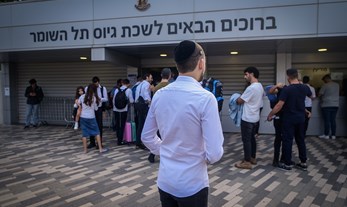
Haredi Enlistment In the IDF – A New Normal?
Written By: Eliyahu Berkovits
A growing number of Haredi men are volunteering for the IDF following the outbreak of the war against Hamas. This trend may signify that the “modern Haredi” phenomenon may be developing into a real movement.
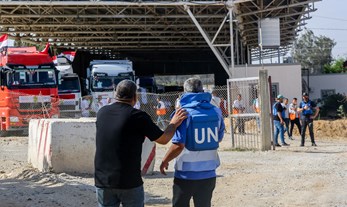
The War on Hamas and International Law
Written By: Prof. Amichai Cohen, Tamar Hostovsky Brandes
International law does not forbid the evacuation of residents to the southern Gaza Strip; on the contrary, it would appear to demand of Israel that it warns residents and encourages them to leave.

Weakening the Civil Service is Part of the Price of the Collapse of the “Perceived Reality”
Written By: Adv. Rita Golstein-Galperin
It is no surprise that the civil service has suffered a severe blow as the current hostilities continue. In light of recent actions aimed at undermining the public sector, immediate action must be taken to address this situation in order to restore social resilience.

The Hamas Abductions and International Law
Written By: Prof. Amichai Cohen
Details and clarifications on the international crimes committed by the Hamas in their abduction of Israeli civilians, and the responsibilities attached to these crimes.

Flash Survey: More Israelis are optimistic about the country's future despite being at war
Written By: Prof. Tamar Hermann, Dr. Or Anabi
Despite being at war, more Israelis are optimistic about the future of the country than earlier this year, yet most Israelis (64%) fear for their physical safety or that of their immediate family members.

A Moment of Truth: International Humanitarian Law and the Gaza War
Written By: Prof. Amichai Cohen
Hamas’s horrendous October 7 attack on Israeli civilians and Israel’s anticipated response pose a unique challenge to scholars and practitioners of the Law of Armed Conflict or International Humanitarian Law (IHL), possibly a challenge they have never faced before.
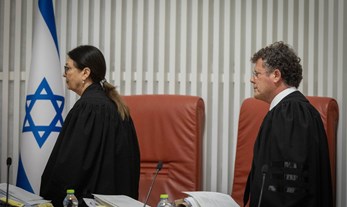
Israel needs a strong supreme court now more than ever
Written By: Dr. Guy Lurie
Justice Hayut's retirement from the presidency of the Supreme Court was well-known in advance, however, the Minister of Justice's refusal to convene the Judicial Selection Committee leaves Israel with a temporary replacement during a national emergency.

The Police at War, As I Explained to My Son
Written By: Dr. Yael Litmanovitz
Policing does not usually involve battles with terrorists. But the unique situation in Israel has shaped the role of our police officers to include internal security missions. What are the skills and capabilities required of police officers in Israel? Do they have sufficient funding? Those are some of the questions Israeli society must attend to once the current crisis is over.

Israel – Hamas 2023 Symposium – Beyond the Pale: IHRL and the Hamas Attack on Israel
Written By: Prof. Amichai Cohen, Prof. Yuval Shany, Prof. Tamar Hostovsky Brandes
The article explores the applicability of international human rights law (IHRL) to the atrocities committed by Hamas on October 7, 2023. Such an analysis is important to fill in gaps in IHL and to establish the jurisdiction of IHRL mechanisms over the violations committed.

Special State of Emergency in Israel’s Court System
Written By: Dr. Guy Lurie
What is a special state of emergency and who declares it?
Minister of Justice Levin declared a "special state of emergency" on October 7th, which has since been extended and is currently valid until October 20th. How does this affect the justice system in Israel?
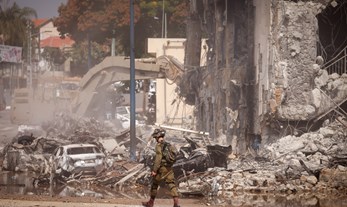
Israel at War: Special Situations and Emergency Events
Written By: Prof. Amichai Cohen, Adv. Mirit Lavi
The government has once again declared a "special home front situation" as the war in the north intensifies. What does this mean?

The War on Hamas: The Decision to Go to War, in Theory and Practice in Israel
Written By: Prof. Amichai Cohen, Dr. Eran Shamir-Borer, Adv. Mirit Lavi
Is the operation in Gaza a war, who is authorized declare war and what is the role of the cabinet and the government after war is declared?
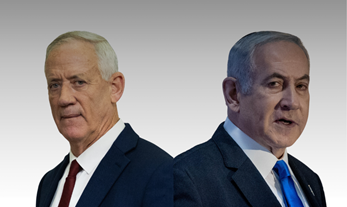
The Case for a Lean, Unified Wartime Cabinet
Written By: Prof. Amichai Cohen
The main demand made by Benny Gantz, chair of the National Unity party, for entering an emergency government is the establishment of a war cabinet. Why is this important and what would the powers of a war cabinet be?
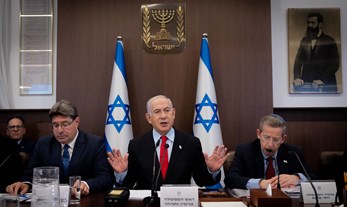
Emergency Governments in Israel
Written By: Dr. Assaf Shapira
As the brutal attack from Gaza continues, the possibility of a change in the composition in the government is being bandied about. What kind of government is possible and what has been done in the past?
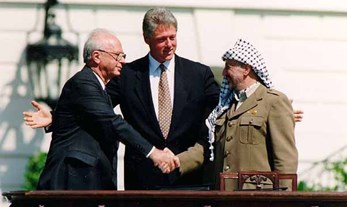
30 years after the Oslo Accords: A large share of Israelis think it was wrong for Israel to enter the process
Written By: Prof. Tamar Hermann, Dr. Or Anabi
As we mark the 30th anniversary of the Oslo Accords this month, a larger share of Jewish respondents think it was incorrect to enter into that process, while the percentage of respondents who selected "don't know" was exceptionally large.

When solidarity was lost on the most important day of the Jewish year
Written By: Prof. Amichai Cohen
The hurt felt by the broad section of the Israeli public that is moderately traditional may have serious consequences for the struggle against the government’s judicial overhaul.
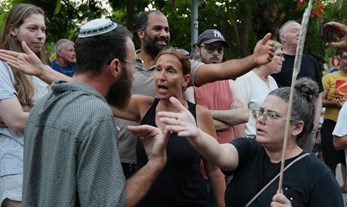
Tel Aviv's Yom Kippur Struggle Could Have Been Avoided
Written By: Adv. Shlomit Ravitsky Tur-Paz
The judicial overhaul is forcing Jewish Israelis to choose to identify, in an almost dichotomic manner with one of two camps. As they clash, the real loser is our unifying, complex, diverse, and open Jewish identity.
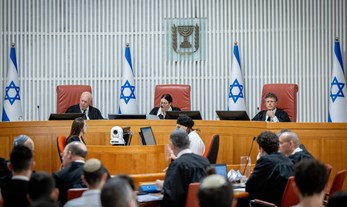
The Supreme Court Hearing on the Incapacitation Law
Written By: Dr. Amir Fuchs
The Supreme Court hearing on September 28th, 2023 will focus on the question of whether the amendment should be interpreted as being valid only in the future, to remedy the perception of personal benefit for the current prime minister.

Many Israelis believe a deal with Saudi Arabia would strengthen PM Netanyahu politically
Written By: Prof. Tamar Hermann, Dr. Or Anabi
As it is widely known that negotiations have been underway between Israel and Saudi Arabia under the auspices of the United States, we asked two questions regarding the expected impact of the negotiations and a possible agreement on domestic matters.

Yom Kippur War: How ChatGPT can be use for military intel, war simulation
Written By: Dr. Tehilla Shwartz Altshuler, Brig.-Gen (ret.) Itai Brun
While technology cannot eliminate uncertainty or surprise, it can help decision-makers think about the future.

Fifty Years After the Yom Kippur War. It’s Time the Security Cabinet Replaced the Prime Minister’s “Kitchen Cabinet”
Written By: Dr. Eran Shamir-Borer, Adv. Mirit Lavi
One of the important lessons learned from the Yom Kippur War was that the authority of government ministers to decide on security-related matters must be strengthened; However, even after five decades, the proper balance between the authority of the prime minister and the members of the security cabinet has not yet been properly regulated.
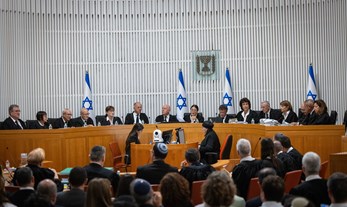
The Supreme Court Hearing on Reasonableness: Law without Enforcement
Written By: Prof. Suzie Navot
On the question of Unreasonableness, it appears that the dispute is not only between the Knesset and the Supreme Court, but also among the justices themselves. There are many possibilities, but only one ruling, which will be handed down no later than mid-January 2024.






